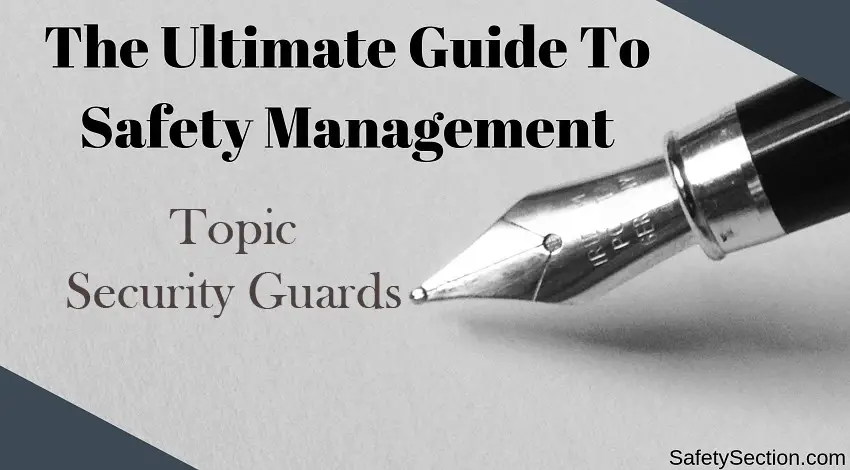Understand the crucial roles and responsibilities of security guards in maintaining safety and security in various environments. This article delves into the key duties of security guards, including patrolling, monitoring surveillance equipment, inspecting buildings, and controlling access points.
Learn how security guards manage emergency situations, enforce laws and regulations, and provide essential support to ensure the safety of people and property. Discover the importance of their role in creating a secure and protected environment for businesses, institutions, and residential areas.

Security Guards Roles and Responsibilities
What Qualities Do Security Guards Need?

Security guards play a crucial role in ensuring the safety and security of people, property, and information. The job requires a unique blend of skills and personal qualities to handle the diverse challenges encountered in various settings. Here are the essential qualities a security guard should possess:
1. Alertness and Vigilance
A security guard must always be alert and aware of their surroundings. Vigilance is critical for identifying potential threats or unusual activities before they escalate into serious incidents. This quality enables security guards to act swiftly and appropriately in preventing security breaches.
2. Integrity and Honesty
Trustworthiness is paramount in the security profession. Security guards often handle sensitive information and have access to secure areas. Demonstrating integrity and honesty ensures that they can be relied upon to protect assets and maintain confidentiality.
3. Physical Fitness
A security guard needs to be physically fit to perform duties that may include patrolling large areas, standing for extended periods, and responding to emergencies quickly. Good physical condition is also necessary for self-defense and handling confrontations when necessary.
4. Effective Communication Skills
Clear and concise communication is essential for a security guard. They must be able to convey information accurately and efficiently, whether it’s writing reports, talking to clients, or coordinating with law enforcement. Good communication skills also help in de-escalating tense situations.
5. Empathy and Interpersonal Skills
Being able to understand and empathize with others is crucial. Security guards often interact with a diverse range of people, including those in distress. Strong interpersonal skills help in managing these interactions diplomatically and professionally.
6. Attention to Detail
Attention to detail is vital for noticing minor changes or irregularities that could indicate a security threat. Whether it’s monitoring surveillance footage or performing routine checks, a keen eye for detail helps in identifying potential risks.
7. Problem-Solving Skills
Security guards must be adept at solving problems quickly and efficiently. This includes thinking on their feet during emergencies, making decisions under pressure, and finding effective solutions to unforeseen challenges.
8. Dependability
Clients and employers rely heavily on security guards to be punctual and consistent in their duties. Dependability ensures that the security measures in place are always operational and effective.
9. Professionalism
Maintaining a professional demeanor at all times is essential. This includes dressing appropriately, adhering to company policies, and treating everyone with respect. Professionalism enhances the credibility and effectiveness of a security guard.
10. Training and Knowledge
A well-trained security guard is knowledgeable about security protocols, emergency procedures, and the use of security equipment. Continuous training and staying updated with the latest security trends and technologies are crucial for performing the job effectively.
11. Resilience and Patience
Security guards must often deal with stressful situations and challenging individuals. Resilience and patience enable them to stay calm and composed, ensuring that they can handle their responsibilities without becoming overwhelmed.
12. Legal Knowledge
Understanding the legal aspects of security work is important. Security guards need to be aware of the laws and regulations governing their actions to ensure that they operate within legal boundaries and respect individuals’ rights.

